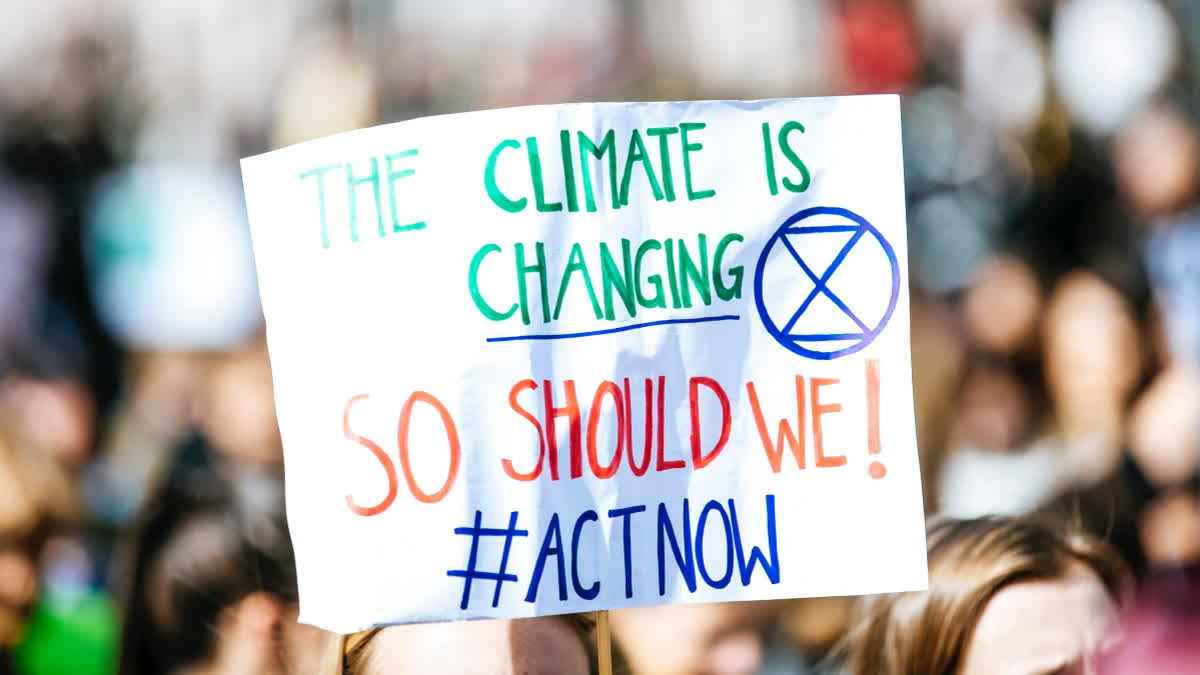Brighton (UK): As a psychologist, I have been researching, writing and talking about psychological and social responses to climate change for over ten years. An increasingly common response appears to be extreme worry. The University of Bath recently published the results of its 2023 Climate Action Survey. Out of almost 5,000 respondents, 19% of students and 25% of staff said they were extremely worried about climate change, while 36% and 33% stated they were very worried. Climate worry was higher compared with results from the previous year's survey.
In 2021, a global survey of how children and young people felt about climate change found similarly high levels of worry. Most of the 10,000 participants reported feelings of sadness, anxiety, anger, powerlessness, helplessness and guilt. This phenomenon is called eco-anxiety, and it's no surprise that so many people suffer from it.
Wherever we are, more of us are now starting to experience the effects of the climate crisis in some way, whether this be drought, food shortages, flooding or extreme weather. Calling the climate crisis a crisis has also gone mainstream after years of being on the margins, and is now front and centre of wildlife documentaries, films, news media and celebrity culture.
Eco-anxiety can't be fixed':Being worried or anxious about the climate and ecological crisis is a reasonable and predictable response to a dangerous situation. We should expect an increase in distress and complex emotional responses. This is an important point for me and many other psychologists and psychotherapists that engage with the climate crisis as a profound societal and psychological challenge. It means that we should be wary of trying to accurately measure distress-related responses like eco-anxiety as individual traits.
When we do, the issue too easily becomes about the individual and the solution to fix them. This is often done by helping them adapt to reality through therapy and even medication. But in framing the problem this way, we collectively engage in a form of denial. Can we, in good conscience, come up with tips for dealing with eco-anxiety if they are only aimed at finding ways to make the bad feelings go away and ignore their source?
I think we can. Distress can be overwhelming and debilitating. We do need to find ways to manage it both individually and collectively, while recognising that eco-anxiety is, in many ways, a healthy response. Here are some tips for coping with eco-anxiety whenever the despair gets too much;
1. Acknowledge difficult emotions:Remind yourselves that anxiety and other emotions reflect a healthy psychological response to the fact that we are living in a time when so much of what we accept about the nature of a good life, progress, and what the future holds is unravelling.
By acknowledging these difficult emotions in yourself and others, you are less likely to engage in denial and defence mechanisms. These mechanisms include minimising the scale of the problem, blaming others and deepening support for opposing viewpoints. The counterproductive nature of these mechanisms in our ability to collectively deal with societal problems is well-documented. For example, if everyone redirects the responsibility of climate action to others, then climate solutions are unlikely to get much traction.
